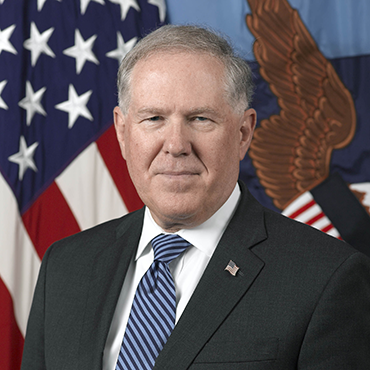Kendall welcomes House acquisition reform bill, with caveats

The Pentagon's top acquisition official says provisions concerning the service chiefs and acquisition experience for personnel need improvement.

Frank Kendall is the Defense Department's undersecretary for acquisition, technology and logistics.
The Pentagon's weapons and IT buyer said he welcomes recently unveiled legislation to reform the troubled acquisition system -- to a point.
According to Frank Kendall, undersecretary of Defense for acquisition, technology and logistics, a bill introduced last month largely gets it right on acquisition reform, with at least two possible exceptions.
Kendall said he was wary of the over-involvement of service chiefs in the acquisition process. Though they have an important role to play, for example, in developing the acquisition workforce, they should not be in the business of program scheduling, he said.
"I have seen some very disastrous cases" in which service chiefs have set arbitrary dates for program deliverables, leading to undue risk-taking, Kendall said April 13 at a Brookings Institution event in Washington, D.C. "I just want to be careful about how far we go in that direction."
The legislation, written by House Armed Services Committee Chairman Mac Thornberry (R-Texas), would not delegate program scheduling to the service chiefs, but it would amend the U.S. code to require the involvement of the service chiefs in acquisition policy.
Thornberry's bill would also create a "dual-track" career path for military officers involving both combat and acquisition experience. That multitasking is intended to "more closely align the military operational, requirements and acquisition workforces of each armed force," the bill states.
But Kendall said he and Adm. James "Sandy" Winnefeld, vice chairman of the Joint Chiefs of Staff, were worried that such a provision would not allow for enough specialization in the Defense Department acquisition workforce. "If somebody were half a doctor and half a lawyer, you wouldn't expect him to be terrific at either one," Kendall said.
To each his own
Thornberry and Kendall say they have consulted one another regularly, and each has his own part to play in acquisition reform.
The Texas Republican has indicated he intends to fold his legislation into the fiscal 2016 defense authorization bill that his committee will mark up April 29.
Kendall last week unveiled the third iteration of the Better Buying Power initiative to improve the Pentagon's acquisition policies and practices. The new guidance is intended in part to ensure cybersecurity is "constantly in mind" in the acquisition process.
When asked by FCW on April 13 what he would say to critics who might charge that cybersecurity should have been a key tenant of earlier versions of BBP, Kendall said, "they're probably right."
"It's not that we're not doing anything about cyber. We are," he added. "But I think the need to make my acquisition workforce much more conscious of it in the pervasive way that I think we need to be conscious of it probably existed earlier. And shame on me, I guess, but I probably should have put it into [BBP] 2.0 or even 1.0. Let's just say there [has been] more evidence of the problem over time."


